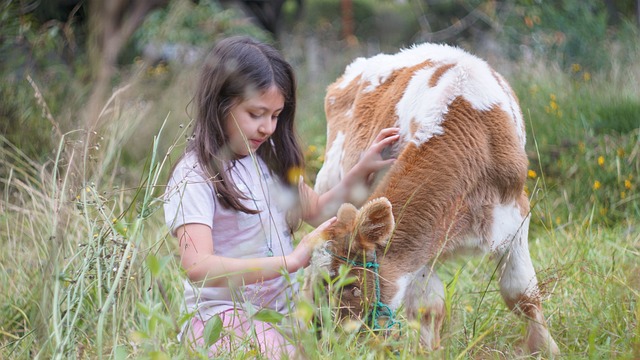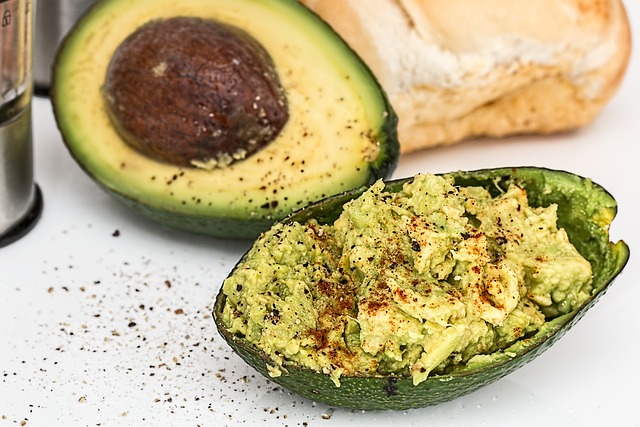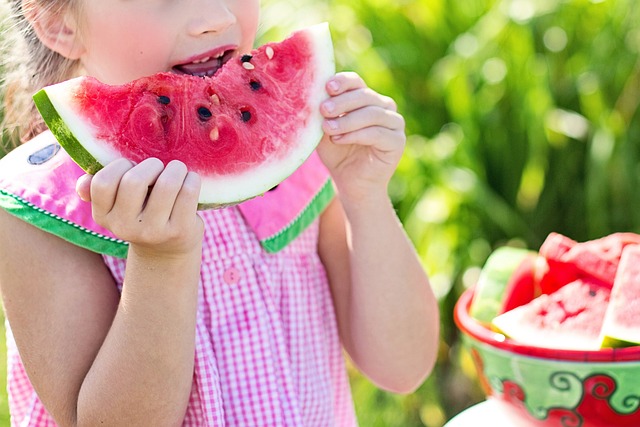Veganism and Child Growth: What You Need to Know
Veganism is becoming increasingly popular, and many parents are considering raising their children on a vegan diet. However, it is crucial to understand the nutritional needs of children who follow a vegan lifestyle. This article aims to provide an overview of the growing popularity of veganism and its impact on children’s growth. It also emphasizes the importance of understanding the specific nutritional requirements for children following a vegan diet.
Table of Contents
Understanding Veganism
Veganism is a lifestyle choice that goes beyond just a dietary preference. It is a commitment to abstain from the use of animal products, whether in food, clothing, or any other aspect of daily life. The principles of veganism are rooted in the belief that animals deserve to be treated with compassion and respect. By adopting a vegan lifestyle, individuals aim to minimize harm to animals and promote a more sustainable and ethical way of living.
There are various reasons why people choose to follow a vegan lifestyle. One of the primary motivations is concern for animal welfare. Vegans believe that animals should not be exploited or subjected to unnecessary harm for human consumption. Additionally, many individuals opt for veganism due to its potential health benefits. Studies suggest that a well-planned vegan diet can provide all the necessary nutrients required for optimal health, including essential vitamins, minerals, and antioxidants.
In recent years, there has been a significant rise in the number of children following a vegan diet. This trend can be attributed to various factors, such as increased awareness of the environmental impact of animal agriculture, as well as the growing accessibility of plant-based alternatives. While veganism can be a healthy and ethical choice for children, it is crucial for parents to ensure that their child’s nutritional needs are adequately met.
Understanding the nutritional requirements for children is essential when considering a vegan diet. Children have unique nutrient needs for growth and development, and it is important to ensure that these needs are adequately met. Some key nutrients that are particularly important for children include protein, calcium, iron, vitamin B12, and omega-3 fatty acids. These nutrients are commonly obtained from animal sources but can also be found in plant-based alternatives.
Parents need to be aware of the potential challenges and misconceptions surrounding veganism and child growth. Some may worry that a vegan diet may not provide enough essential nutrients for their child’s healthy development. However, with proper planning and attention to nutrient intake, a vegan diet can meet all the nutritional requirements of a growing child. It is crucial to provide a variety of nutrient-dense plant-based foods to ensure a well-balanced diet.
In summary, understanding veganism involves comprehending its definition and principles, as well as the reasons for choosing the vegan lifestyle. With the rise in the number of children following a vegan diet, it is essential for parents to be aware of the nutritional requirements for their growing child. By understanding these needs and properly planning their child’s meals, parents can ensure that their vegan children thrive and achieve adequate growth.
Nutritional Requirements for Children
Children have specific nutritional needs that are crucial for their growth and development. It is important to understand these requirements and ensure they are being met, especially for children following a vegan diet.
Firstly, let’s explain the specific nutritional needs of children. Children require a well-balanced diet that provides them with adequate amounts of protein, carbohydrates, fats, vitamins, and minerals. These nutrients play a vital role in their physical and cognitive development. Protein is necessary for muscle growth, while calcium contributes to bone health. Iron supports oxygen transportation in the body, and vitamin C aids in iron absorption.
Emphasizing the importance of essential nutrients for growth and development is crucial. Nutrients like omega-3 fatty acids, vitamin D, and vitamin B12 are essential for brain development, bone health, and overall well-being. These nutrients are commonly found in animal-based products, which leads to the comparison of nutritional differences between a vegan and non-vegan diet for children.
When comparing the nutritional differences, it’s essential to note that a well-planned vegan diet can provide all the necessary nutrients for a child’s growth and development. However, there are certain challenges and misconceptions surrounding veganism and child growth.
Some of the challenges include obtaining sufficient amounts of protein, calcium, iron, and vitamin B12 from plant-based sources. However, with proper planning and knowledge, these challenges can be overcome. For example, protein can be obtained from plant-based sources like legumes, tofu, and quinoa. Calcium can be found in fortified plant-based milk or through the consumption of leafy green vegetables. Iron can be obtained from plant-based sources like beans, lentils, and fortified cereals, while vitamin B12 can be supplemented or obtained from fortified foods. It’s important to address these challenges and provide accurate information to dispel misconceptions.
By understanding the nutritional requirements for children and the potential challenges of a vegan diet, parents can ensure their child receives a well-rounded and balanced diet. It is crucial to meet these nutritional needs through a variety of plant-based foods and, if necessary, consult healthcare professionals for personalized advice.
In conclusion, providing children with adequate nutrition is a priority for their growth and development, regardless of their dietary choices. Veganism can be a healthy and nutritious lifestyle for children when properly planned and monitored. By understanding the specific nutritional needs, emphasizing essential nutrients, comparing nutritional differences, and addressing challenges and misconceptions, parents can confidently support their child’s growth on a vegan diet. It is essential to make informed decisions and seek professional guidance to ensure their children thrive on a vegan lifestyle.
Meeting Nutritional Needs on a Vegan Diet
When it comes to meeting nutritional needs on a vegan diet, it is crucial to pay attention to the essential nutrients that are often lacking in vegan diets and find alternative ways to obtain them. While a vegan diet can provide numerous health benefits, it is important to ensure that children receive all the necessary nutrients for their growth and development.
One nutrient that is commonly lacking in a vegan diet is vitamin B12. This vitamin is primarily found in animal products, but there are vegan-friendly alternatives available, such as fortified plant-based milks, cereals, and nutritional yeast. Supplementation may also be necessary to ensure adequate intake of vitamin B12.
Another essential nutrient that may be lacking in a vegan diet is calcium. However, there are plenty of vegan-friendly sources of calcium, including leafy greens, tofu, fortified plant-based milks, and calcium-set tofu. It is important to include these foods in a child’s diet to promote healthy bone growth and development.
Protein is another important nutrient that should not be overlooked in a vegan child’s diet. While animal products are a common source of protein, there are several plant-based sources that can provide adequate protein intake, such as beans, legumes, tofu, tempeh, whole grains, and nuts. Including a variety of these foods in meals can help ensure that children meet their protein needs.
In addition to these essential nutrients, it is crucial to emphasize the significance of balanced meals and variety in a vegan child’s diet. This means including a mix of fruits, vegetables, whole grains, legumes, and plant-based proteins in each meal. By promoting variety, parents can ensure that their children receive a wide range of nutrients necessary for healthy growth and development.
Meeting nutritional needs on a vegan diet requires careful planning and consideration. By understanding the essential nutrients commonly lacking in vegan diets and finding alternative sources for them, parents can provide their children with a nutritionally balanced diet. Encouraging a wide variety of plant-based foods and emphasizing the importance of balanced meals will further support healthy growth and development in vegan children.
Supporting Healthy Child Growth
One of the key considerations for parents raising vegan children is ensuring that their nutritional needs are met for healthy growth and development. While a well-planned vegan diet can provide all the necessary nutrients, there may be some areas that require extra attention.
Supplementation plays a crucial role in meeting nutritional requirements for vegan children. Certain nutrients, such as vitamin B12 and iron, are more commonly found in animal-based foods. Therefore, it is important for parents to consider incorporating supplements to ensure their child’s needs are adequately met. Consulting with a healthcare professional can help determine the right dosage and type of supplementation for the child.
There are also potential health benefits associated with a well-planned vegan diet for children. Research suggests that vegan diets may be linked to a lower risk of obesity, heart disease, and certain types of cancer. By providing a variety of plant-based foods, parents can support their children’s overall health and well-being.
Here are some tips to help parents ensure their vegan children are thriving and achieving adequate growth. Firstly, it is important to prioritize variety in their diet to ensure they are getting a wide range of essential nutrients. This can be achieved by including a variety of fruits, vegetables, whole grains, legumes, and plant-based protein sources.
Secondly, parents should prioritize balanced meals that include all the necessary food groups. This means incorporating sources of protein, such as tofu, tempeh, or beans, along with sources of healthy fats, like nuts, seeds, and avocados. Additionally, including calcium-rich plant-based foods, such as sesame seeds, leafy greens, or fortified plant-based milk, can support proper bone development.
Finally, regular check-ups and monitoring by healthcare professionals are essential. They can assess the child’s growth and development, identify any potential nutrient deficiencies, and provide specific recommendations for the child’s unique needs.
In conclusion, supporting healthy child growth on a vegan diet involves strategic planning and attention to detail. Supplementation, a well-balanced diet, and regular monitoring are key factors in ensuring that vegan children are thriving and achieving adequate growth. By taking a proactive approach and seeking guidance from healthcare professionals, parents can navigate the challenges and reap the potential health benefits of raising a vegan child.
Health Considerations and Advice
The health and well-being of children following a vegan diet is a topic of concern for many parents. Understandably, some parents worry about potential nutrient deficiencies that might arise from excluding animal products from their child’s diet. However, with careful planning and attention to nutrition, a vegan diet can provide all the necessary nutrients for healthy growth and development.
Addressing parents’ concerns about potential nutrient deficiencies is crucial in alleviating their worries. It is important to note that while there are certain nutrients that may require extra attention when following a vegan diet, there are various plant-based sources available to fulfill these requirements. For example, calcium can be obtained from fortified vegan milk alternatives, tofu, leafy green vegetables, and sesame seeds. Iron can be found in legumes, tofu, spinach, and fortified cereals. By consuming a wide variety of plant-based foods, parents can ensure their child receives all the necessary nutrients.
Discussing the importance of regular monitoring and supplementing if necessary is another aspect that cannot be overlooked. Regular monitoring of a child’s growth and development is essential for identifying any deficiencies or imbalances. If there are concerns about specific nutrients, such as vitamin B12 or omega-3 fatty acids, supplementation may be necessary. Consulting a healthcare professional, such as a pediatrician or registered dietitian, can provide personalized advice and guidance on maintaining a healthy vegan diet for a child.
Providing guidance on consulting healthcare professionals for personalized advice is crucial for parents to make informed decisions about their child’s diet. These professionals can assess the child’s individual nutritional needs, provide recommendations specific to their growth and development, and address any concerns or questions parents may have. They can also guide parents on appropriate supplementation, if needed, and monitor the child’s progress over time.
In conclusion, following a vegan diet is possible for children while ensuring their nutritional needs are met. By addressing parents’ concerns about potential nutrient deficiencies, emphasizing regular monitoring, and advocating for professional guidance, parents can support their child’s healthy growth and development on a vegan diet. It is important to approach veganism and child growth with an informed mindset and make decisions that prioritize the child’s well-being.
Conclusion
In conclusion, this article has explored the topic of veganism and child growth, aiming to provide parents with the necessary information to make informed decisions about their children’s diet.
Key points discussed include the increasing popularity of veganism, the specific nutritional requirements for children, and the potential challenges and misconceptions surrounding a vegan diet for children.
It is crucial to emphasize the need for a balanced approach to veganism and child growth, as adequate nutrition is essential for a child’s growth and development. Understanding the nutritional needs of children following a vegan diet is crucial to ensure they receive all the necessary nutrients.
While a well-planned vegan diet can provide all the essential nutrients, there are certain nutrients that may be lacking in a vegan diet. Supplementation and consuming a variety of vegan-friendly alternatives can help meet these nutritional needs.
Furthermore, it is important for parents to support their child’s healthy growth while following a vegan diet. This can be achieved by monitoring their child’s nutritional intake, ensuring a balanced meal plan, and seeking guidance from healthcare professionals when necessary.
In conclusion, parents considering a vegan diet for their children should make informed decisions based on a thorough understanding of the nutritional requirements and potential challenges. Ultimately, a balanced approach to veganism and child growth, supported by proper education and guidance, is crucial for the optimal health and well-being of vegan children.







